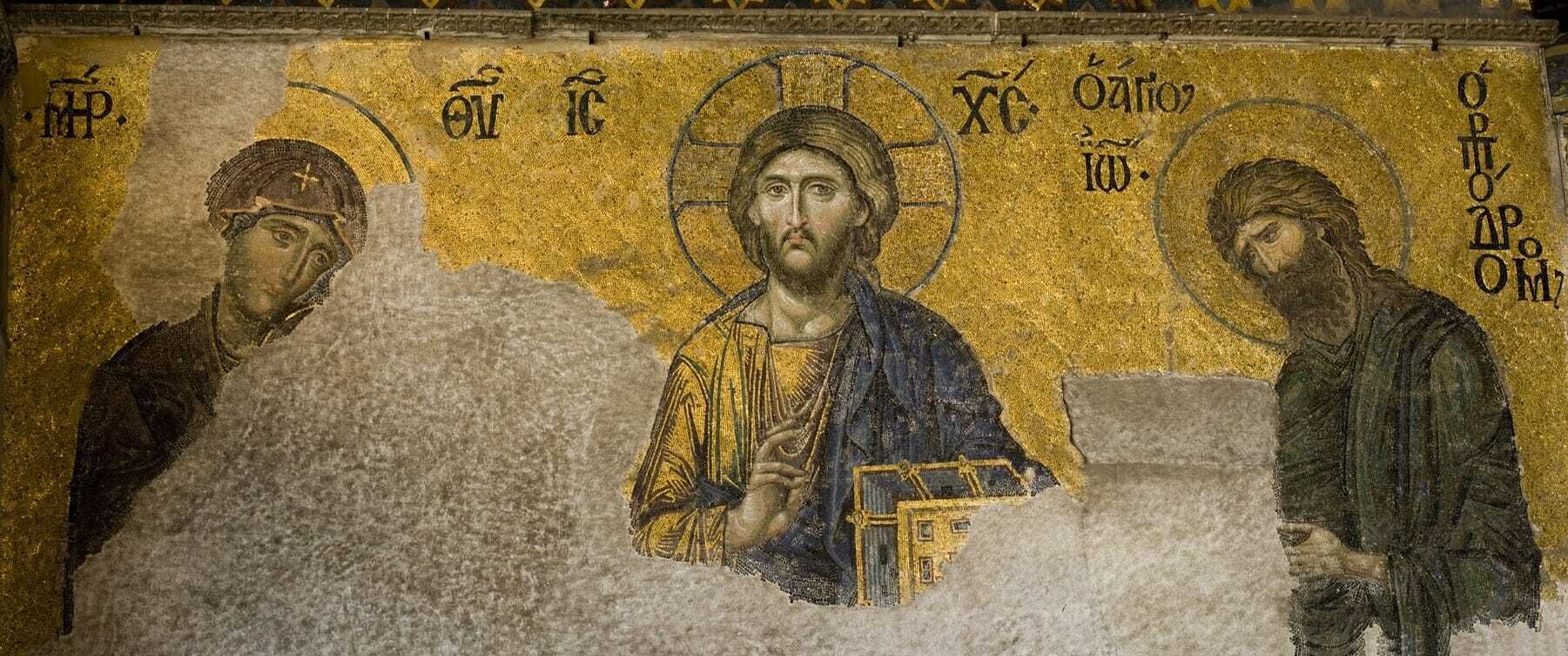Our English noun ‘tradition’ comes from the Latin verb tradere, which means ‘to hand over or pass down.’ The English noun ‘traitor’ has the same linguistic roots; as in a traitor is someone who hands over things he shouldn’t. The root of these words is important because, while we may establish and pass down our own traditions, they are – at their core – not things we generally invent. We inherit them as gifts, and pass them on as gifts.
In Catholic theology, God’s divine Revelation has been preserved and is transmitted, not just by sacred Scripture, but also through sacred Tradition; i.e., by Tradition with a capital T. Beginning with Jesus’ own preaching and sanctifying works, from the time of his apostles to today, “the Church, in her doctrine, life and worship, perpetuates and transmits to every generation all that she herself is, all that she believes.” In fact, it was in and through the handing on of sacred Tradition that “the apostolic preaching, which is expressed in a special way in the inspired books, was to be preserved in a continuous line of succession until the end of time” (DV 8). Together, therefore, Scripture and Tradition “make up a single sacred deposit of the Word of God, which is entrusted to the Church” (DV 10).
The interconnectedness and bond between Scripture and Tradition can be seen, for example, in the dogmatic teachings of the early Church councils. The council Fathers, meditating on the meaning of Scripture and the Tradition they inherited, were able to compose dogma – e.g., the Nicene-Constantinopolitan Creed – so that one could then interpret Scripture more clearly and with greater “insight into the realities and words that are being passed on” (DV 8). In turn, these dogmatic expressions, which are an extraordinary exercise of the Church’s universal teaching authority, became part of sacred Tradition. “Sacred Tradition and sacred Scripture, then, are bound closely together, and communicate one with the other” (DV 9).
Another example of what we’ve inherited from sacred Tradition, one very close to our mission here at Saint John’s Seminary, is that of divine worship. While certain aspects of the liturgy may develop over time – e.g., its expression in Latin or the vernacular languages – those portions of the liturgy which contain “immutable elements, divinely instituted” (SC 21) are also very much part of sacred Tradition. The Church is their custodian and transmitter, not their inventor and manipulator.
Though there can be many traditions that have been given to us and that we pass on to others, like a type of food we cook or place where we vacation, sacred Tradition – together with sacred Scripture – is how we come to know God’s divine Revelation. It is Tradition with a capital T. And, of course, that Revelation is not fundamentally contained in words or practices, but a person. It is Jesus Christ himself who is the summation of “the entire Revelation of the most high God” (DV 7). When we receive and pass on Tradition, therefore, we receive and pass on Christ himself.


